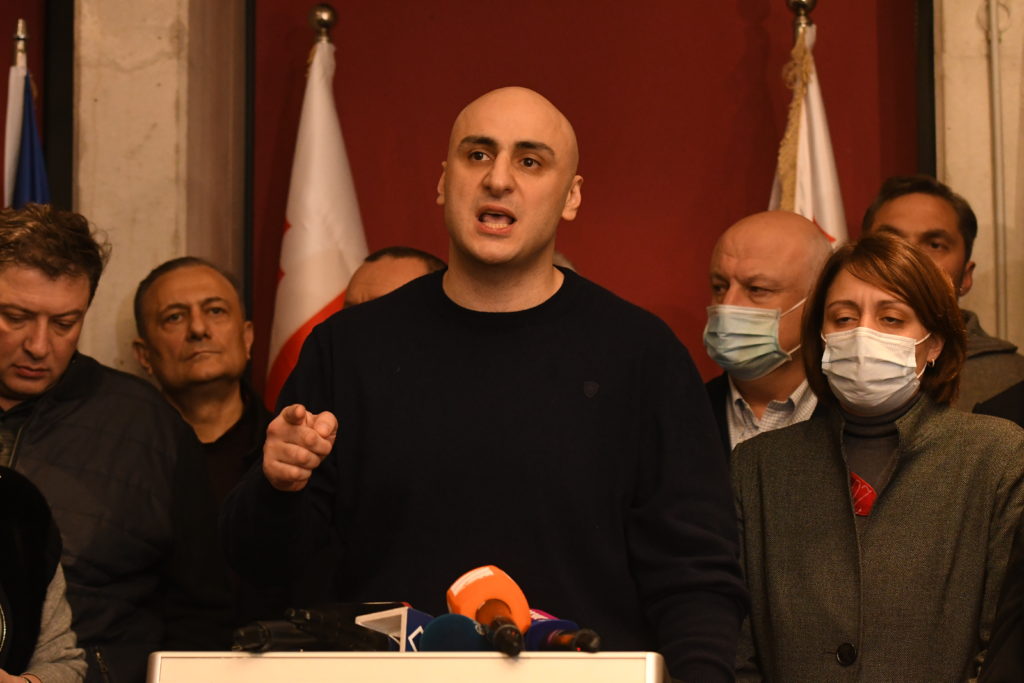TBILISI
by The Tribune staff
Georgia’s opposition leader Nika Melia, whose arrest earlier this year plunged a country already crippled by the economic consequences of COVID-19 into a political crisis, will continue to await a final verdict in custody, a Tbilisi court ruled yesterday. Hundreds of his supporters gathered outside the court demanding his release.
Melia, the formal leader of the United National Movement, Georgia’s biggest opposition party, was arrested in February for refusing to pay a bail charge imposed on him after he ripped off a monitoring tag during an opposition protest in November, soon after a parliamentary election that government critics say was unfair. He was initially charged for inciting violence during anti-government protests in June 2019 which later turned violent. He claims the charges were politically motivated.
“The most important thing for me is a sense of duty to myself,” Melia said in a statement after the verdict. “I owe it to myself that in exchange for my illegal detention no unfair compromise will be made.”
The anti-government protests presented Georgia with its biggest domestic challenge in years, coming on top of an economic crisis that has brought its economy almost to its knees. The country has been hurt far more than many other regional neighbours because of its heavy reliance on tourism, which has been wiped out for over a year. They intensified after last year’s parliamentary election. Opposition groups have boycotted the assembly, citing their charges the vote was not legitimate.
International observers said the vote was “competitive and, overall, fundamental freedoms were respected”, but they also cited pervasive allegations of pressure on voters, and added there were widespread reports of vote-buying.
The situation worsened earlier this year when Prime Minister Giorgi Gakharia quit in February after a court issued an order to arrest Melia. Gakharia indicated that the court order was dubious, and cited the possibility of disorder in the country.
The European Union has warned Georgia it may suspend its financial aid unless the solution is found, and has displayed an unusual amount of frustration with Tbilisi. The EU sent a high-ranking diplomat to the country to help mediate talks, but they proved unsuccessful.
Melia’s release is one of the key issues raised in talks between the government and opposition leaders.
Georgia’s Prosecutor’s Office said after Melia’s arrest that it was ready to appeal to the court to replace his pre-trial detention if he agrees to pay a bail of 40,000 lari ($12,000), a move that the opposition leader refused to heed.
The court’s next hearing is scheduled for April 29.

